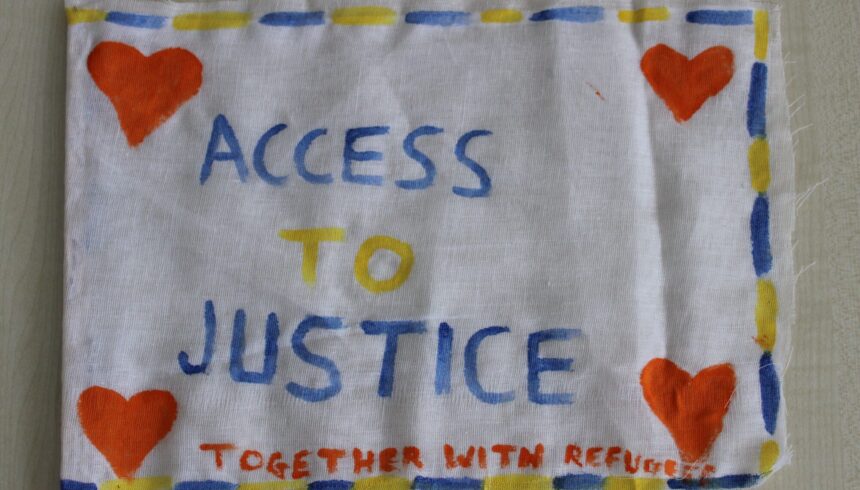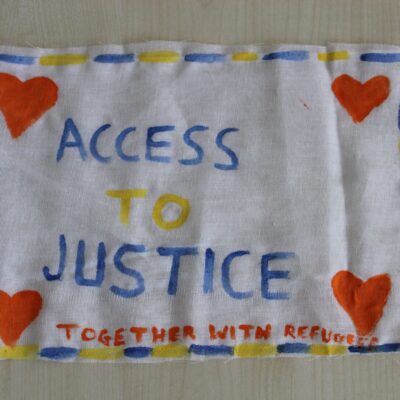The Home Office announcement that they were issuing 10,000 questionnaires to asylum seekers from countries such as Syria and Afghanistan was met with mixed reactions. On the one hand, the idea that swift action could be taken to resolve large numbers of cases where there had been delays was obviously welcome. On the other hand, the lack of consultation or thought meant that legal aid providers were faced with additional work on 10,000 cases with short deadlines as well as logistical difficulties such as contacting clients who had been moved round the country and dealing with those whose hopes and expectations were raised. Concerns about the way the questionnaires were being issued and the required responses were met by gaslighting and intimidation. But the truth always was that there simply isn’t the capacity amongst immigration legal aid providers – let alone good quality legal aid providers – to provide adequate legal representation on initial asylum applications. That’s before you add on the questionnaires, and then there are appeals, leave renewals, further submissions (fresh claims, applications where exceptional case funding has been obtained),- the list goes on, but capacity for legal advice is limited.
This is not simply an issue for asylum seekers. It is far more fundamental. Legal Aid is the single most important plank of access to justice. Without access to free legal representation, access to justice is restricted to those who can pay for it. Where access to justice is not universal it ceases to be justice and the concept of the “rule of law” can no longer hold any weight. Legal Aid is not there because the government is kind. It exists to shore up the British legal system.
Legal Aid rates have not risen since 2007
10 years on after the cuts introduced by LASPO the Legal Aid Sector is facing crises on all fronts. Jo Wilding, a barrister who has researched legal aid deserts in the UK, writes;
“There was a 20% reduction in the number of housing legal aid providers in the 18 months to March 2023. The same period saw a 21% loss of legal aid providers for mental health, and a 27% loss in welfare benefits. In immigration and asylum, over 30% of the providers given contracts in September 2018 had stopped doing legal aid work by March 2023.”
This is on top of the closures that followed the cuts in scope, in what legal aid would pay for, of 2012-14. Legal aid rates have not risen since 2007. This is effectively a 30% cut since the contract was introduced but sector wide and specific factors have combined to put an unprecedented strain on immigration legal aid practitioners.
Home Office delays mean that providers have to keep cases open for much longer. Even if there is less substantial work to do on a case there are still enquiries from increasingly desperate refugees, and ongoing contact to be kept up. Adding extra unpaid work such as the questionnaires with short deadlines only compounds this and there’s little sign of swift case resolution.
Online court processes have made both the running of and the funding of appeals more complex.
Taking immigration ( non-asylum ) work out of scope of legal aid meant that much expertise and many providers left the legal aid sector. The work can be done under legal aid if an additional barrier of an exceptional funding application is made but this does not create the extra caseworkers to do the applications that are so needed.
The barriers set up by the home office – renewals of leave every 2.5 years for immigration cases, arbitrary refusals or rejections of cases which are clearly going to win at appeal or challenge, all create extra unnecessary work. This aspect of the hostile environment simply wastes resources to give the impression that the government is somehow in control.
For workers in this sector, especially younger and newer lawyers, the pressures from the funding environment mean that it is harder to focus on providing the time and support that you know your clients need.
And on top of this, successive Home and Justice secretaries deem it appropriate to directly abuse and threaten the sector. For some of us this is just confirmation we are doing something right but for others the rhetoric comes with a very real physical threat.
Young Legal Aid Lawyers recently reported the pressures on younger/newer lawyers in immigration and record 1 in 5 saying they are leaving the sector or thinking about leaving. In the light of the above, who would blame them? Personally, I thought these numbers were surprisingly low and a credit to the dedication and resilience of so many, but the day-to-day experience of the legal project and destitution team at JRS is that the availability of competent legal advice and representation for our refugee friends is fast diminishing.
There is a renewed focus in the sector to address this. Increasingly, frontline organisations are trying to address the advice gap themselves, trying to provide their own in-house legal teams as well as finding ways to make the best of decreasing capacity. It is what we have done at JRS, and it is something that is working for our refugee friends. But it can only be a short-term step. We need to be demonstrating models that could work for legal aid, for clients and caseworkers, not trying to replace it. It’s no more alright to give up on the provision of legal aid than it would be to accept food banks or night shelters instead of living wages or decent housing.



